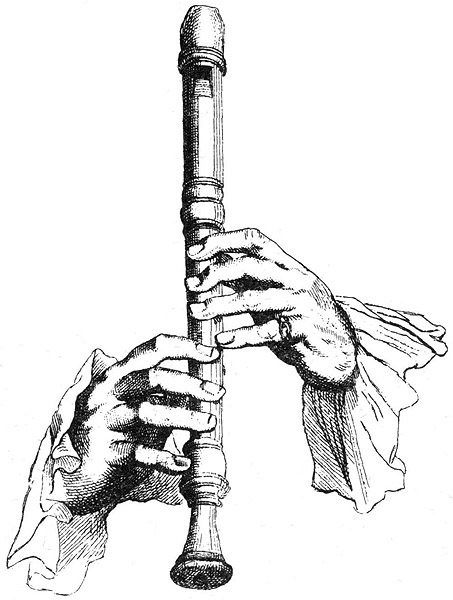|
And then there's this...

I now have my badge of admission to the 2020s — a positive COVID test.
I've almost certainly had COVID before,
in the fall of 2021, but did not test positive.
This looks like a mild case with a slow onset. For several days I've occasionally
felt weak or feverish (without a demonstrable fever) and wondered if the weakness
was just old age catching up with me. Cold-like symptoms started and got worse,
and this morning I decided to do a COVID test, just in case. Positive. I will start
antiviral medication tomorrow.
Fortunately I had not been out in public much and had been wearing a mask a lot,
mainly because I was in medical facilities and didn't want my slight cough to
scare people.
I'm actually glad to know that this vague weakness was COVID, not old age.
By the end of the month I'll be rid of COVID but will still have old age.
Melody, by the way, continues to make good progress; has been instructed to put
as much weight on her bad leg as she can bear; and uses a walker rather than a
wheelchair most of the time.
Permanent link to this entry
What does it record?

Public domain image from Wikimedia Commons
I've just found out for certain why this musical instrument is called a recorder.
(I had had vague information for a long time but wasn't sure.)
Its original purpose is to "record" (reproduce) tunes for training singers.
Just as a modern choir room always has a piano in it, a medieval one often had
someone with one of these. It was a teaching instrument (think of pitch-pipes today),
not a performance instrument.
That didn't stop everybody from
Vivaldi
to
The Association from using it in musical
performances.
I took up playing the recorder in college because it was convenient and affordable;
I wanted to enjoy making music but didn't see a good opportunity to resume the few
piano lessons that I had had in high school.
Part of the appeal of the recorder was that it was a short slope from beginning to
what might be called "intermediate" level, being able to play most of the music that
should be playable on the recorder, though not as a virtuoso.
I have 4 recorders, partly because, during long summer trips, more than once I wanted
to play the recorder and bought one locally.
I haven't played the recorder in about 20 years but am getting back to keyboard
music just a little, due to the Christmas present that Melody and I gave each other
(a low-end Yamaha keyboard).
Permanent link to this entry
Is it always wrong to speak falsely?
This started as a discussion among Christians on Facebook, but the issue isn't actually
theological and may interest others.
A Christian leader asked:
"Is it always a sin to deliberately speak something untrue? Did Rahab sin while hiding the spies? Did Corrie Ten Boom's family lie while hiding Jews?"
First, let me dispose of the elephant in the room: For several years we've had a veritable
plague of people infected with the evil idea that it is fine to spread (and believe) political falsehoods
in order to "help the right side win," that if the wrong candidate wins, it will be so evil that even mass
deception and self-deception are justified to prevent it.
That is repugnant. It's self-serving lying, and the obvious question is whether the belief that it is
justifiable is itself part of the self-deception. Yes. Enough of that.
Back to Rahab and Corrie Ten Boom (and examples mentioned by Cicero and Plato).
My take?
Many people are asking for a simpler answer than is possible.
You're not going to get a 3-word easy answer to this.
It's complicated, and you shouldn't be afraid of thinking it through.
I think one key point is that not everyone is entitled to the information that they ask for,
and sometimes, in order to not give information, you have to leave the person believing something false.
Another key point is that truth does not reside in words. It resides in an act of speaking, in context, with an intention and expected result.
People should know they sometimes have no right to an informative reply to a question, and any answer they do get will not be accurate. That is part of the context.
So I think the key to it is, if a person is not entitled to information and the information would facilitate something that is undeniably wrong,
then don't give them accurate information, even if you have to say something that is literally false. In context, it is not a lie; it is privacy.
Two excuses won't work.
One is that you have to deceive voters about politicians
in order to keep something evil from happening.
The voters have a right to accurate information.
They are not enemies.
They are a legitimate authority in a democratic society.
The other excuse that won't work is "it's OK if it's done in a spirit of Christian love."
That turns ethics into an emotion and is on a level with the notion that
"extramarital sex is OK if you're really in love." How do you test whether you've achieved
the right emotional state? And doesn't this mean anybody who can manipulate your emotions
can manipulate your ethics?
So, to sum up: Uttering a false statement to prevent an evil act can be justifiable
if it's done to someone who does not have a legitimate right to true information.
And it is an extreme move, to be avoided if at all possible — it's rather
like shooting someone in self-defense — a last resort.
Permanent link to this entry


|






